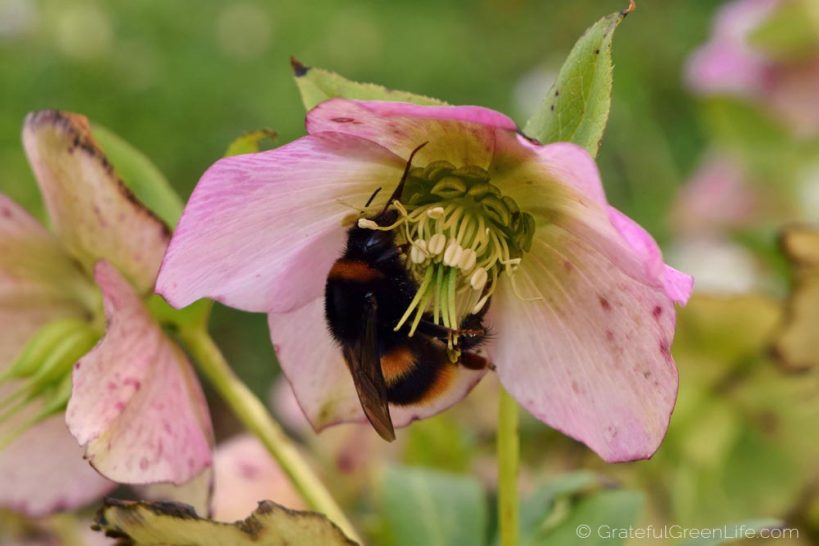Since starting my garden allotment I’ve become so much more mindful of the wildlife I share my space with, as well as the important role that pollinators play, in successfully growing produce.
Why are pollinators important?
Pollinating animals and insects are essential for fertilizing the majority of all flowing plants, including an enormous variety of edible crops, which make up much of our diets.
Once pollinated, these plants can then make seeds (which are often surrounded by edible fruits) that allows them to reproduce.

Pollinators are often undervalued, but they’re absolutely fundamental in bringing diversity to our eco-systems and food to our tables. In fact, without them, it’s hard to imagine how the human race would survive.
Sadly, future generations may not need to imagine this scenario, as if pollinator populations continue to dwindle, this threat to our food supply might become a reality.
Why are our pollinators declining?
Over the past 70 years, 97% of wildflower meadows in the UK have been lost – with many being replaced by vast swathes of monoculture crops (where just one variety of crop is planted).
This massive loss in plant diversity has hugely affected pollinator diversity, and because of this, large numbers of many species are declining.
The use of harmful pesticides, insecticides and fungicides has also impacted our pollinators, and the more we build on our land and concrete over our green spaces, the worse the situation will get.
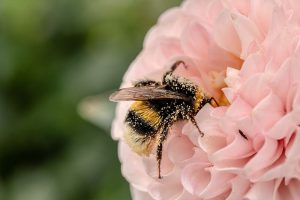
How can we help pollinators?
Thankfully, if you have access to a garden (or even a small balcony, yard, allotment or community garden) there’s a lot you can do, to help our pollinators out. We can:
- Build bug hotels to provide shelter for our pollinators.
- Put pebble trays out, filled with shallow water so that our bees and insects can have a drink.
- Weed and mow a little less to allow native wildflowers to spring up around our gardens.
- Plant a good selection of flowering plants (that bloom at different times throughout the year) to provide nectar for a wide range of pollinating species.
Fragrant, flowering herbs are particularly good for attracting pollinating insects to our gardens, and today we’re going to be looking at some of the best ones to plant, to restore the habitat of our pollinators.
10 Helpful Herbs to Attract Pollinators into Your Garden
Bergamot
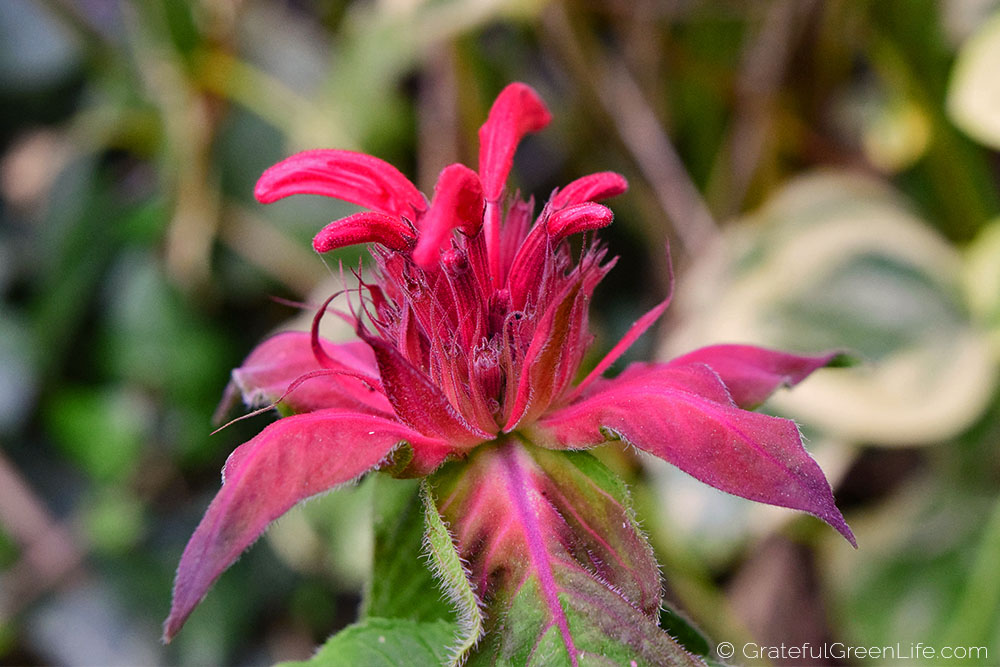
Bergamot is a beautiful flowering perennial which is also known as Bee Balm, due to its ability to attract pollinators, such as bees.
The leaves and flowers are both edible, however, I usually leave the flowers for the pollinators, and make a delicious antimicrobial and antispasmodic tea, using just the fragrant leaves.
Borage
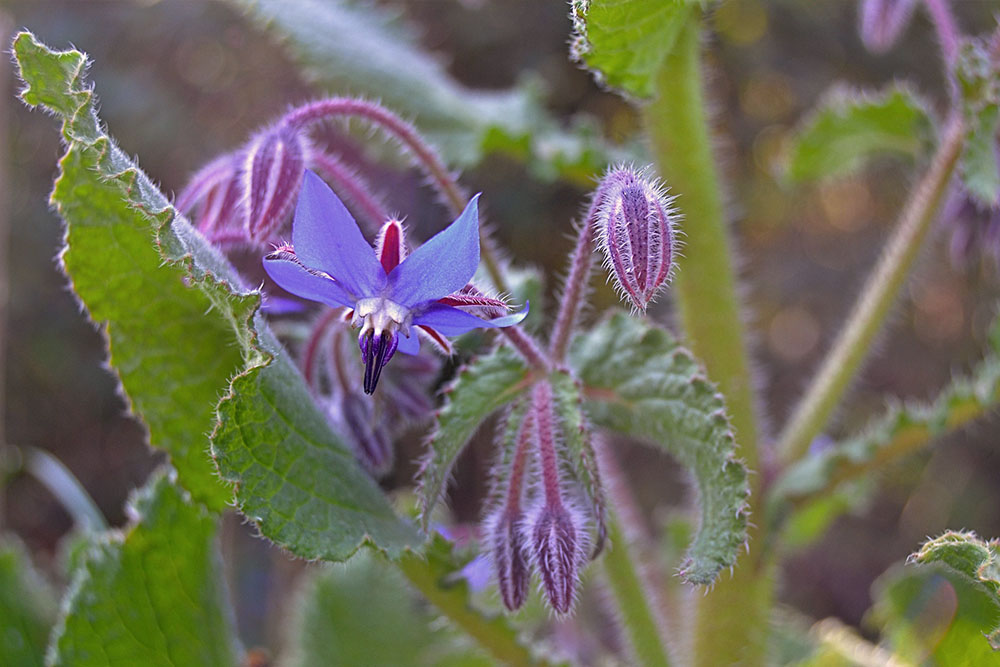
Borage is a hardy annual, which is hugely popular with short-tongued varieties of bee.
It has clusters of gorgeous blue flowers and is often planted as a companion plant alongside tomatoes, strawberries and squash.
Borage leaves taste a little like cucumber, and make a wonderful addition to a salad!
Chives
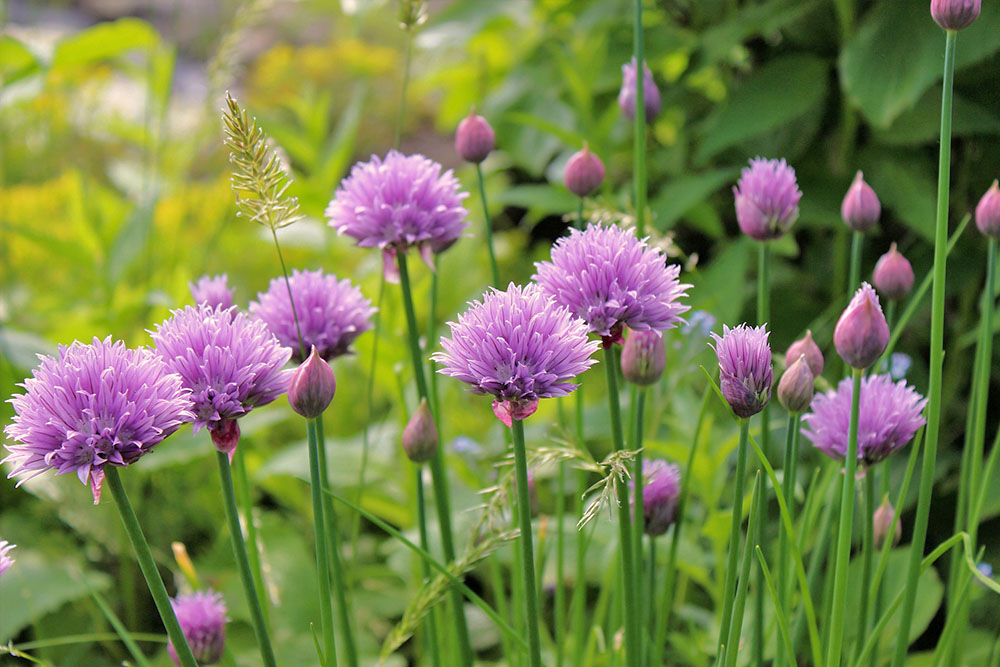
Chives are easy-to-grow perennials, which flower during the spring and summer, and are very much loved by bees!
Their chopped leaves can be sprinkled on salads, or used as a tasty garnish – and because allium vegetables (such as chives, onions, leeks and garlic) are all excellent prebiotics, they can help to promote a healthy gut microbiome.
Comfrey
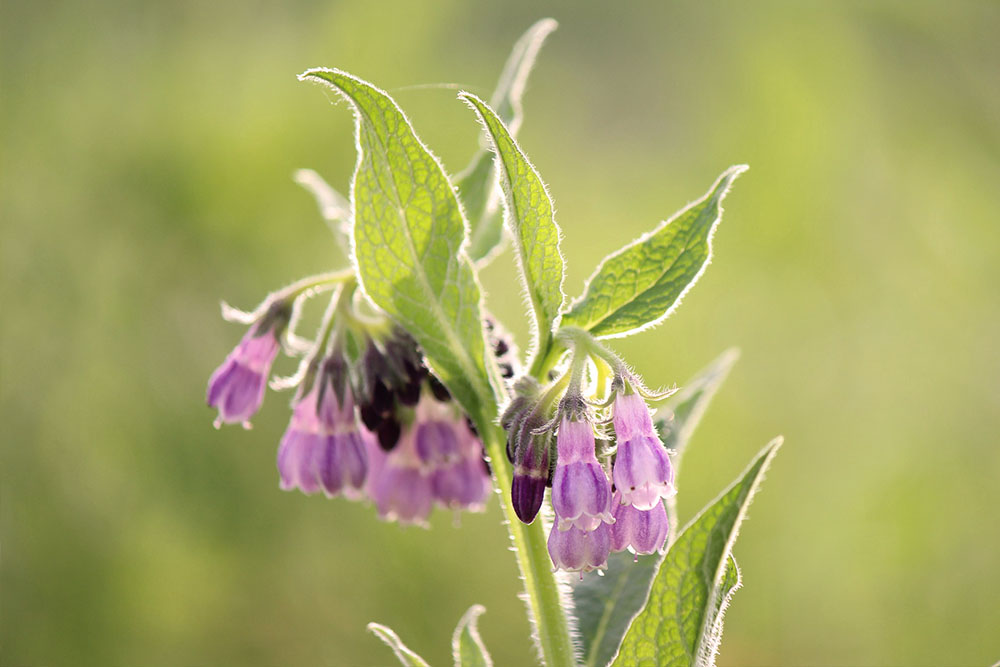
Comfrey is a hardy perennial which flowers all the way from spring, through to late summer.
This beautiful flowering herb, is a great source of nectar for long-tongued bees, and will attract many of them into your garden.
Although it’s not usually considered to be edible, this plant is extremely beneficial for feeding your garden and allotment! It can either be added to compost or combined with water, to create a nutrient-rich, chemical-free fertilizer.
Hyssop
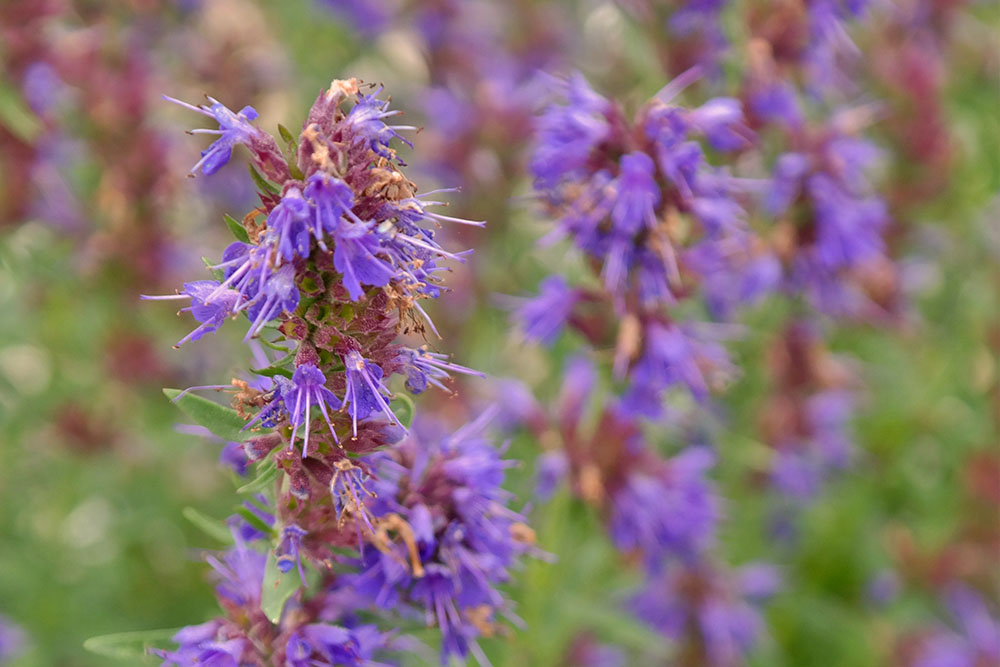
Hyssop (Hyssopus Officinalisis) is an evergreen shrub, which is a brilliant plant for pollinators.
It has beautiful, spire-shaped flowers which usually bloom from mid-to-late summer, attracting a whole host of bees and butterflies.
Due to it’s antiseptic and expectorant properties, Hyssop is also used medicinally, but it should only be done so under professional guidance.
Mint

Mint is a prolific perennial herb, which has strongly scented leaves, and stalks of pink, white or lilac flowers, which bloom during the summer.
There are many different varieties of mint to choose from (some are better for culinary use than others) but whichever kind you grow, it’s probably best to plant it in a container, to avoid it spreading out of control!
Oregano

Oregano is an aromatic, perennial herb that, when flowering, is a real magnet for honeybees!
Originating from the Mediterranean, this beautiful plant thrives best in a sunny spot with well-draining soil.
This tasty herb is commonly used to add a punch of flavour to many Greek and Italian dishes, and it can also be used medicinally, as a natural antibiotic.
Rosemary

Rosemary is a popular evergreen shrub which is especially helpful for pollinators, as it flowers early in the springtime, before many other plants have bloomed.
This beautifully scented plant makes a wonderful addition to roasts and stews, and is often used medicinally to improve memory and concentration.
Thyme

Thyme is a gorgeous evergreen perennial which flowers from late spring onwards, and is perfect for attracting many different species of bee.
This popular culinary herb is renowned for its fragrant flavour, and is also known for its excellent antiseptic properties.
Thyme thrives best when grown in a sunny spot, in sandy, well-draining soil.
Lavender

This list wouldn’t be complete without lavender! This fragrant perennial is loved by humans and bees alike, and in late spring and the early summer, it provides a really great source of nectar.
Lavender flowers not only smell great, they’re also edible too, and add a fabulous floral flavour to a variety of different dishes.
Of course, lavender is also the ultimate herb for relaxation – which may be just what you need, after a busy day in the garden, planting up these bee-friendly herbs!
Do you grow any of these herbs, and which ones do you like the best? I’d love to hear your thoughts, as well as any ideas you might have, for how we can help our pollinators out!
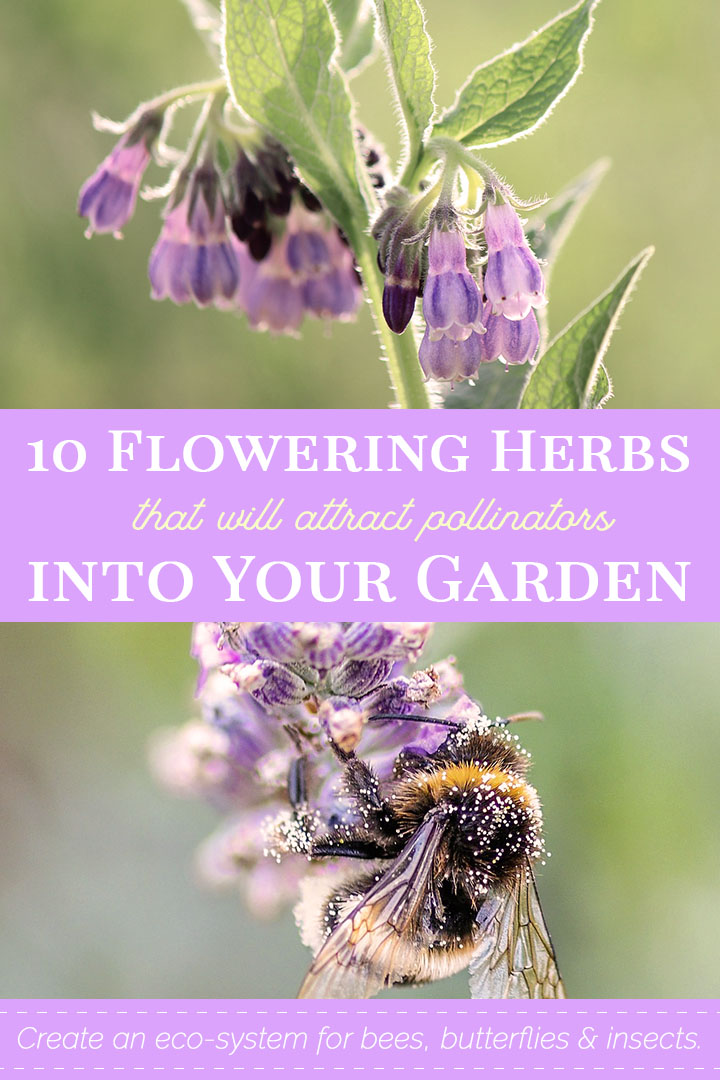
Please note: I’m not a doctor, and the information on this website is not intended to be a substitute for professional medical advice, diagnosis, or treatment. Always seek the advice of your doctor regarding any medical condition.
This post contains affiliate links, which means I may receive a small commission for purchases made through certain links on this page (at no extra cost to you). Thank you so much for your support!

